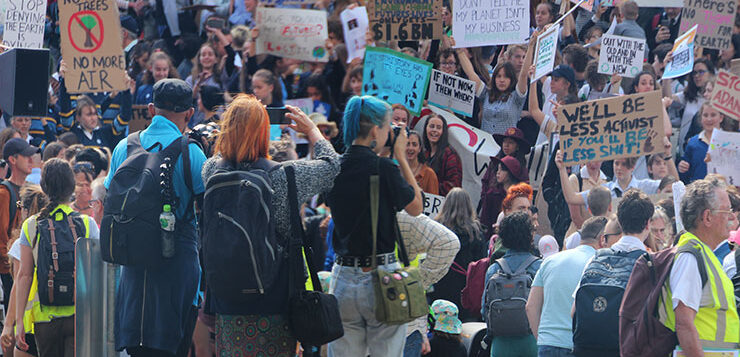Remember that time that we locked teens out of social media, and made them all safer by silencing and disempowering them? Neither does Dr Kathryn Daley.
This week we have seen the launch a campaign for young people to be precluded from accessing social media until they are 16. Led by a radio station and endorsed by politicians as senior as the Prime Minister, the repeated claim is that social media is harmful for young people’s mental health.
Protecting young people is a noble pursuit, but this proposal might cause more harm than that which it seeks to prevent.
Young people, by virtue of their age, are commonly considered to be vulnerable and unable to make significant decisions about their lives. They cannot legally get a tattoo, vote, drive a car, create a will, or drink alcohol. They can, however, be deemed as having full criminal responsibility at age 10, pay taxes and become parents.
These inconsistencies reflect the contested nature of when a child or young person is “mature” enough and “competent” enough to make decisions about their lives. This same tension is underpinning the debate about social media – a debate from which young people appear to have been excluded.
Sidestepping the obvious question of how, if at all, such a policy could be implemented, let’s consider the ethical claim that we are “protecting” young people.
We start from the premise that social media is entrenched with bullying and risk of exploitation. The assumption behind the proposal is that by delaying access to social media, young people will be more capable to manage trolls and exploitative behaviours when they do use it. It seems to be the accepted fact that the harms of social media use outweigh any benefits and that young people need to be protected from these harms.
The only form of protection that is being discussed is prohibition – an approach not historically successfully in curbing social ills.
But the benefits of social media must be substantial if young people (like adults) are using it so much. It is important to consider the function that social media plays in young people’s lives and the answer lies in its name: social media provides young people with a free and accessible way to be social, a normal human need, but they live in a society that doesn’t offer them many places to just “hang out”.
Outside of school and structured activities such as team sports, young people have few places that are accessible and welcoming to them. The digital world creates a landscape for them to interact. Not dissimilar to teenagers of previous generations on the house phone all afternoon to a friend, social media helps young people to be connected to one another.
Of course, it is no utopia. It offers bullies and predators global reach. The snowballing of stories and posts can turn a bad moment into a terrible month. Online bullying can be invisible to parents and torturous to young people. Online, young people are vulnerable to being preyed upon – and internet safety is a crucial skill that we all need to learn and practice.
But via social media, young people are able to participate in public discussions that are about them, and which will affect them.
In Victoria, during the hard lockdowns of the public housing towers, we saw young people use TikTok and X (formerly Twitter) to advocate for themselves and their communities. Social media was an equalising voice that enabled young people to get stories to the public.
Globally, the school student climate strikes have been organised through social media and we have seen more young people engaged in political activism than we have witnessed in generations. Cynics might suggest that this rise in political activism might be linked to the push to get young people off social media.
Via social media, young people have been able to claim a seat at the (digital) table to participate in discussion about things that matter to them. They can contact political representatives and express their views. They can see each other and connect with peers beyond their own school enabling them to extend their social network beyond the bullies of their own classrooms.
Without access to social media, it would be extraordinarily difficult for young people to do any of this – which does suggest that rather than protecting young people, the proposed ban is disempowering and paternalistic.
If the government wants to improve the mental health of young people, they could invest money in internet safety, education about privacy, bullying prevention, youth workers in schools, or most radically, they could consider funding youth mental health services adequately.
Donate To New Matilda
New Matilda is a small, independent media outlet. We survive through reader contributions, and never losing a lawsuit. If you got something from this article, giving something back helps us to continue speaking truth to power. Every little bit counts.




